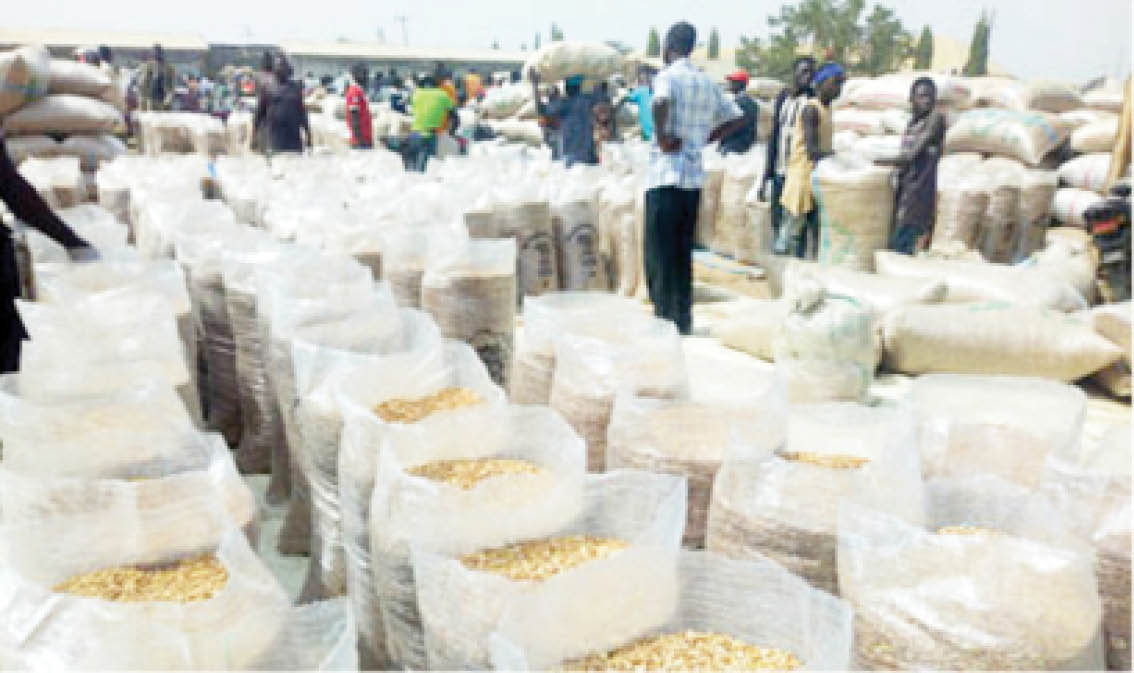Nigeria faces a spectre of food insecurity that deserves urgent attention. Various reports by international agencies and local authorities have painted the grim reality of food insecurity in our country, with clear warnings about its consequences. Food insecurity refers to a situation in which members of a household experience lack of access to enough food that will enable them pursue active and healthy lives.
Earlier this year, the Food and Agricultural Organisation (FAO) disclosed that as many as 19.4 million Nigerians faced food insecurity. The FAO report was produced jointly with the Federal Ministry of Agriculture and Rural Development, as well as other partners in the food and agriculture sector. This is up from the 12.8 million Nigerians FAO predicted would experience food supply challenges last year.
FAO said the alarmingly high level of food insecurity was due to a number of factors, including shortfalls in cereal production in 2021, worsening conflicts, high food prices and macroeconomic challenges compounded by the impacts of the COVID-19 pandemic. It warned further that the number of Nigerians facing food insecurity could rise over initial estimates in the second half of this year following increases in food and fuel prices due to the war in Ukraine.
“Further aggravating risk factors to food insecurity are the high prices of agricultural inputs, notably fertilisers, persisting insecurity and forecast localised unfavourable weather conditions that could have additional negative impacts on agricultural production,” FAO said.
Kano mall hands over N175m expired food items for destruction
Senate rejects Kebbi’s request for N6.7bn road project refund
Considering that the above reports were released prior to the recent flooding that destroyed thousands of hectares of farmlands in Nigeria, it is clear that the extent of the food insecurity threat in Nigeria has worsened. From North to South, thousands of farmers had their farms wholly or partially destroyed. Many analysts thus consider the devastating floods as a major contributor to the country’s food challenge for the rest of this year up till 2023.
Consequently, the International Monetary Fund (IMF) in its report: “Nigeria: Staff Concluding Statement of the 2022 Article IV Mission”, released on November 18, 2022, at the end of its annual consultations, said the effects of the flooding and high fertiliser prices could become more entrenched, impacting negatively on both agricultural production and food prices in 2023.
It noted further that despite Nigeria’s limited direct exposure to the Russia-Ukraine war, the economic effects of the conflict had permeated here through higher domestic food and fuel prices thereby compounding the scarring effects of the pandemic on Nigeria’s vulnerable millions.
Similar observations have come from the World Bank, which at various times noted that rising prices, especially food inflation, had pushed millions of Nigerians into the poverty region, with more likely to follow before the end of this year. Indeed, Nigeria has been experiencing rising food inflation, with food prices rising above the general price level. Example, headline inflation rose to 21.09 in October, a 17-year high, from 20.77 in September, while food inflation rose to 23.72 per cent from 23.34 per cent in the same period and 18.34 per cent a year earlier.
In its view, the IMF noted that over the next decade Nigeria would need an estimated 25 million additional jobs to accommodate new labour market entrants. It stressed that for agriculture to continue playing a strong role in employment and ensure food security, boosting production and yields through improved inputs like affordable fertilisers and higher quality seeds, better storage facilities and more coordinated policy support across government agencies would be needed.
IMF’s position coincided with the release of Nigeria’s Multidisciplinary Poverty Index (MPI) report for this year by the National Bureau of Statistics (NBS). The report disclosed that 133 million Nigerians (63 per cent of the population) are “multi-dimensionally poor”, higher than the monetary poverty rate which has been put at 40 per cent of the population. The MPI measures poverty in terms of deprivation that individuals suffer in four areas: health, education, living standard and work and shocks.
Offering further details, the NBS said that 38.6 per cent of Nigerians faced food insecurity. This means that over 84 million Nigerians are facing food insecurity, indicating clear dangers for other dimensions of security such as crime in the country. These scenarios, therefore, make it imperative for governments across the country to act immediately.
First, the federal government, in concert with state governments and other partners, should consider importing grains from the international market, even if that may mean borrowing more. Government should also consider releasing some of its grain reserves, along with effective plans for dealing with the activities of hoarders who mop up grains they buy at cheaper prices in order to push the prices up. We should also prepare adequately for the next farming season. Whatever steps governments take, these must be taken quite seriously in order to fill an obvious deficit in the food shortage that stares the nation in the face. Let there be enough food for Nigerians, please!

 Join Daily Trust WhatsApp Community For Quick Access To News and Happenings Around You.
Join Daily Trust WhatsApp Community For Quick Access To News and Happenings Around You.


